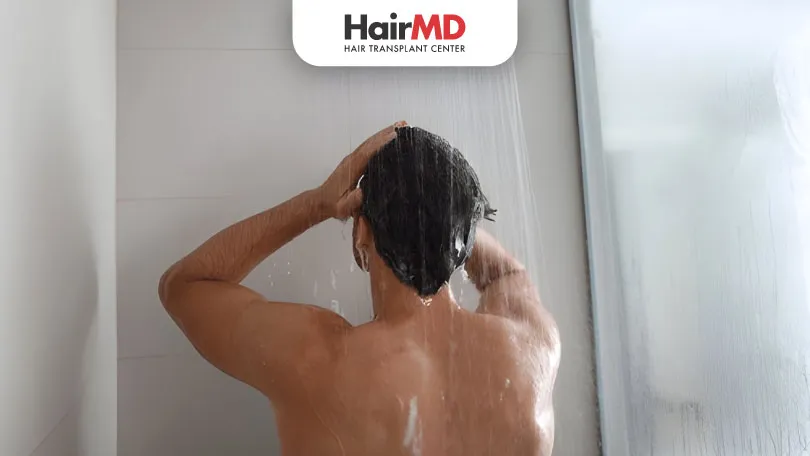
Hard water, characterized by high levels of minerals like calcium carbonate and magnesium sulfate, can have a surprising effect on your hair. When you use hard water to wash your hair, these minerals can build up, making your hair feel brittle and dry. Over time, this can lead to hair damage and even hair loss.
In this blog, we’ll explore the symptoms of hair loss caused by hard water and share effective remedies to combat hair damage. Whether you’re noticing more breakage or just want to understand how to protect your locks, we’ve got you covered. Let’s dive into how hard water affects your hair and what you can do to restore its health.
What’s covered in the article?
- Symptoms behind Hair Loss due to Hard Water
- Remedies for Hair Damage due to Hard Water
- Conclusion
Symptoms behind Hair Loss due to Hard Water
Below are the symptoms behind hair loss due to hard water:
No Formation of Lather During Shampoo
The minerals like calcium present in hard water interact negatively with acids in soaps. Calcium adheres to the cleaning solutions, forming a difficult, sticky mass to remove. This may seem familiar because this causes soap scum on your shower walls.
Dry and Frizzy Hair
Hard water dries out your hair, and the moisture cannot seep into the hair strands, which makes it predisposed to tangles.
Breaking off at Base
This is caused by calcium deposits on the scalp, which many people misinterpret for hair loss. The issue may not be with the hair root but with the hair shaft’s brittleness. Hard water will make your hair fragile no matter how healthy your follicles are.
Remedies for Hair Damage due to Hard Water
Hair loss and hard water can dramatically impact the quality of your hair. Below listed are a few remedies you can use for neutralizing the effect of hard water on your hair:
Apple Cider Vinegar Rinse
One tablespoon of vinegar with three cups of water should be applied to the scalp after shampooing to remove layers of salts built on your hair due to showers with hard water. This solution must be applied once a week to neutralize hair damage from hard water.
Rinse With Bottled Water After Every Shower
Softer, purified water applied to your scalp and hair as you finish your shower will help prevent scaly build-up caused by hard water’s magnesium and calcium.
If you have rough and frizzy hair due to hard water, do not panic and consult an expert dermatologist nearby. The doctor will help you find the cause and prescribe treatment for your hair damage and hair loss.
DO YOU KNOW?
Nearly 250 Patients Visit HairMD
Everyday For Various Hair Concerns
(15+ Years Of Expertise. 4157+ Successful Hair Transplant)
Meet Our Dermatologists
Conclusion
In conclusion, hard water can significantly impact your hair health, leading to symptoms such as lack of lather, dryness, frizziness, and breakage. These issues stem from the mineral build-up caused by calcium and magnesium in the water, which can weaken your hair and make it prone to damage.
Fortunately, remedies like apple cider vinegar rinses and using bottled water for final rinses can help mitigate these effects. If you’re struggling with hair damage or loss due to hard water, consulting with a dermatologist can provide you with tailored solutions to restore and maintain your hair’s health.
Further Reading
Top Hair Growth Treatments for Women: Your Ultimate Guide
Find effective hair regrowth treatments for women. Explore solutions like PRP, medications, and more to combat hair loss with expert advice from HairMD.
Relation Between Masturbation and Hair Loss
Is there a relation between masturbation & hair loss? Uncover truth with our detailed analysis, separating fact from fiction to provide clarity on this common concern.
Biotin for Hair: Effective or Overrated? | HairMD Pune
Biotin is popular for hair growth, but does it really work? Find out what HairMD Pune experts reveal about its benefits and limitations.
Is Male Pattern Baldness Dominant or Recessive?
Male pattern baldness is not simply dominant or recessive. Learn the genetics, myths, and treatments available at HairMD Pune.
Have thoughts? Please let us know
We are committed not only to treating you, but also educating you.










